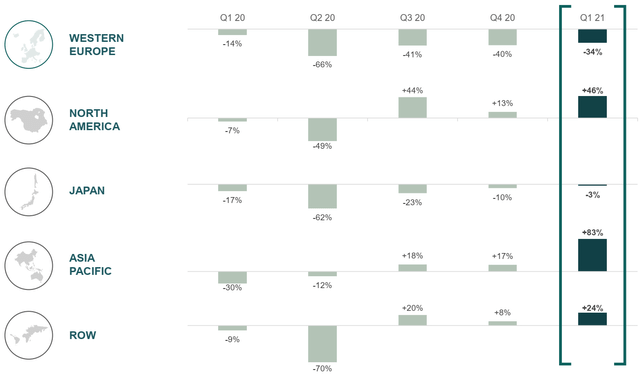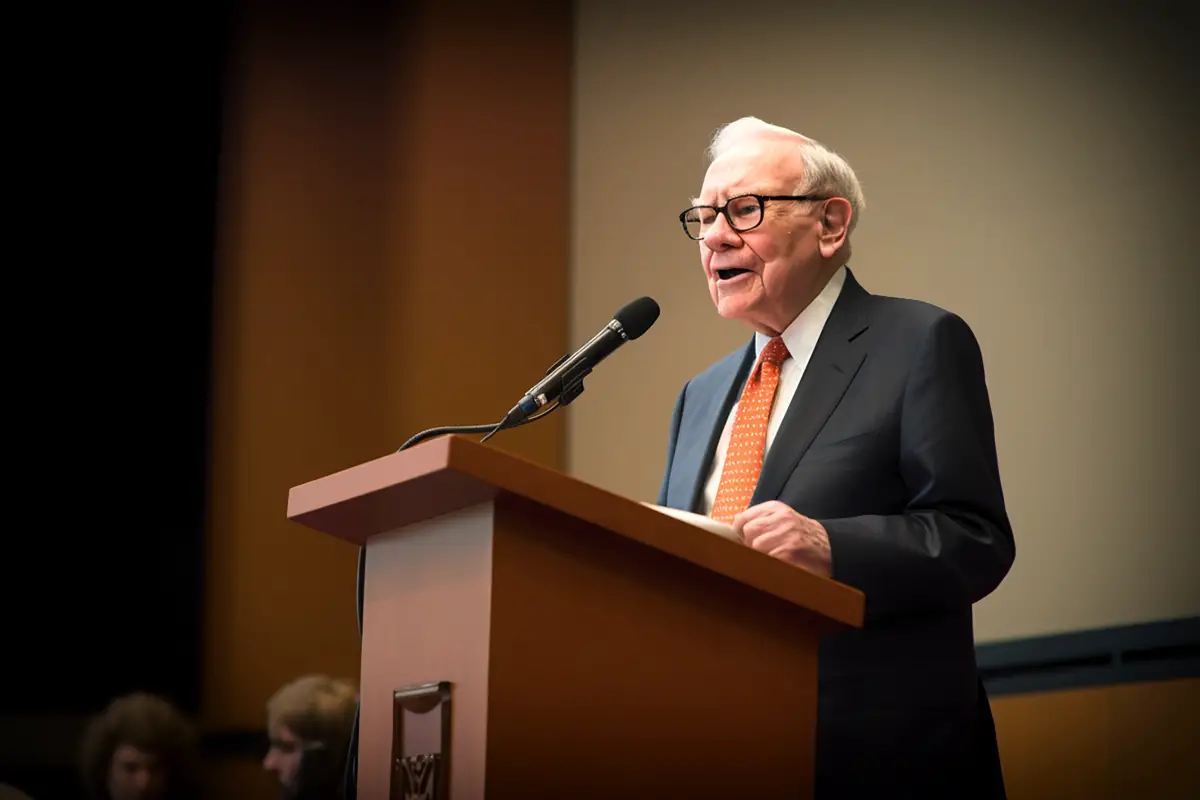6% Kering Share Slump After Q1 Performance Misses Expectations

Table of Contents
Underperformance Across Key Brands – A Deeper Dive into Q1 Results
Kering's Q1 2024 results revealed a concerning trend of underperformance across several key brands. While the company holds a dominant position in the luxury market with a diverse portfolio including Gucci, Yves Saint Laurent, Bottega Veneta, and others, several brands failed to meet expectations, contributing significantly to the Kering share slump.
- Gucci: Gucci, historically Kering's flagship brand, showed a marked slowdown in sales growth compared to Q1 2023 and internal projections. This underperformance was particularly noticeable in certain key markets and product categories. Specific details regarding the sales figures remain awaited by analysts.
- Yves Saint Laurent: While Yves Saint Laurent demonstrated more resilience than Gucci, its growth also lagged behind expectations, contributing to the overall negative sentiment impacting the Kering share price.
- Bottega Veneta: Bottega Veneta also experienced a decline in revenue, suggesting a broader issue within Kering's portfolio rather than isolated brand-specific challenges. The luxury market slowdown significantly impacts the performance of this brand.
The underperformance across these core brands highlights a need for a reassessment of Kering's strategies within the ever-evolving luxury landscape. External factors, such as the ongoing global economic slowdown and geopolitical instability, also played a role, impacting consumer spending on luxury goods and contributing to the Kering Q1 results disappointment.
Impact of Supply Chain Disruptions and Inflation
The ongoing impact of supply chain disruptions and persistent inflation significantly affected Kering's financial performance during Q1 2024, further contributing to the Kering share slump.
- Increased Raw Material Costs: The rising cost of raw materials, from leather and textiles to precious metals, squeezed profit margins, impacting the overall profitability of Kering's product lines.
- Shipping Delays: Supply chain bottlenecks and shipping delays led to production delays and stock shortages, impacting the availability of key products and potentially hindering sales.
- Mitigation Strategies: Kering implemented various strategies to mitigate these challenges, including exploring alternative sourcing for raw materials and optimizing its logistics network. However, the effectiveness of these measures in the face of persistent global economic headwinds remains to be fully assessed. Analysts are keen to see further details about Kering's supply chain strategies moving forward.
The combined effect of these supply chain issues and inflation on the cost of production and availability of goods exacerbated the challenges faced by Kering's brands, compounding the impact on its Q1 results and fueling the Kering share slump.
Investor Reaction and Market Analysis
The disappointing Q1 results triggered a negative reaction from investors, resulting in a sharp decline in Kering's stock price.
- Analyst Downgrades: Several analysts issued negative reports and downgraded their ratings for Kering stock following the release of the Q1 figures, citing concerns about the company's performance and outlook.
- Sell-offs: Significant sell-offs were observed in the days following the announcement, contributing to the 6% drop in Kering's share price.
- Market Capitalization Impact: The slump significantly impacted Kering's market capitalization, underscoring the seriousness of the situation for investors. The Kering stock price volatility underscores the sensitivity of the luxury goods market to economic shifts.
The swift and substantial investor reaction highlights the market's sensitivity to even minor setbacks in the performance of luxury goods companies. The Kering share price is closely watched as an indicator of the broader luxury goods sector's health.
Kering's Response and Future Outlook
Kering has acknowledged the challenges highlighted in its Q1 results and outlined a plan to address the issues.
- Cost-Cutting Measures: The company has initiated cost-cutting measures across various areas of its operations to enhance profitability and efficiency.
- Strategic Initiatives: Kering is also pursuing various strategic initiatives aimed at boosting sales and brand revitalization across its portfolio.
- Recovery Plan: Kering's management has expressed confidence in its ability to navigate the current challenges and return to a path of sustainable growth. However, the success of these strategies will be crucial in restoring investor confidence and reversing the Kering share slump. The Kering future outlook remains uncertain given the persisting economic headwinds.
The credibility and efficacy of Kering's response will play a crucial role in shaping its future performance and investor sentiment. The coming quarters will be crucial in determining whether these initiatives will prove successful in reversing the current trend.
Conclusion: Understanding the Kering Share Slump and What's Next
Kering's 6% share slump following its disappointing Q1 2024 results stemmed from a combination of factors, including underperformance across key brands, the disruptive impact of supply chain issues and inflation, and a negative investor reaction. The significance of these Q1 results extends beyond Kering itself, serving as a potential indicator of challenges faced by the broader luxury goods sector. The company's response, including cost-cutting measures and strategic initiatives, will be pivotal in determining its ability to recover and regain investor confidence. To understand the full implications, follow Kering's share price, analyze future Kering performance, and stay updated on Kering's financial results. The evolving situation requires continued monitoring to gauge the long-term impacts on both Kering and the luxury goods market.

Featured Posts
-
 Today Show Cohosts Comment On Anchors Prolonged Absence
May 24, 2025
Today Show Cohosts Comment On Anchors Prolonged Absence
May 24, 2025 -
 Netherlands Hosts Major Bangladesh Business And Cultural Event
May 24, 2025
Netherlands Hosts Major Bangladesh Business And Cultural Event
May 24, 2025 -
 Apple Stock And Tariffs A Look At Buffetts Investment Strategy
May 24, 2025
Apple Stock And Tariffs A Look At Buffetts Investment Strategy
May 24, 2025 -
 Dont Miss Out Wrestle Mania 41 Golden Belts And Tickets Memorial Day Sale
May 24, 2025
Dont Miss Out Wrestle Mania 41 Golden Belts And Tickets Memorial Day Sale
May 24, 2025 -
 Eurovision Village 2025 Conchita Wurst Live With Special Guest Jj
May 24, 2025
Eurovision Village 2025 Conchita Wurst Live With Special Guest Jj
May 24, 2025
